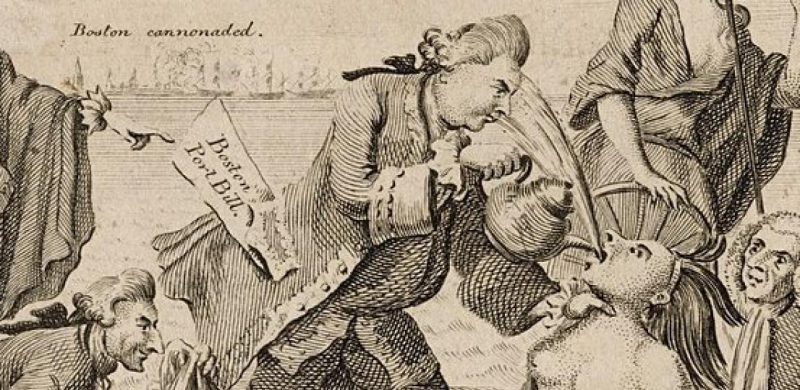The Intolerable Acts
The British government responded to the Boston Tea Party by using a divide-and-conquer policy to separate troublesome Boston from the other colonies, which Parliament felt were simply following Boston's radicals. The Coercive Acts, which were intended specifically at Boston and envisioned as punishment for its strong opposition to British policy, were approved by Parliament in the spring of 1774. Boston, the core of anti-British sentiment, was to be cut off from the other colonies as a result of the Intolerable Acts. The colonists replied to the Intolerable Acts by holding the First Continental Congress to deliberate and establish a united front against the British. The Coercive Acts, often known as the Intolerable Acts in the colonies, were made up of four independent legislative actions.
The first was the Boston Port Act, which shut down the port until the colonists compensated for the tea that had been destroyed. The second was the Massachusetts Government Act, which changed the state's charter, putting it under British rule and prohibiting town assemblies without prior consent. The third was the Administration of Justice Act, which permitted royal officers accused of crimes committed in Massachusetts to be prosecuted in Great Britain.
The Quartering Act, which applied to all colonies, was the last and most contentious Act. It authorized a governor to put troops in vacant homes and structures in cities. Even though colonists were not required to board troops in their homes, they were required to pay for the cost of lodging and feeding the soldiers. These Acts were seen by the colonies as a breach of their constitutional rights and a danger to British America's liberty. As a result, the Acts fuelled anti-British sentiment and united the colonies in favor of Massachusetts.
Date: May 20, 1774













